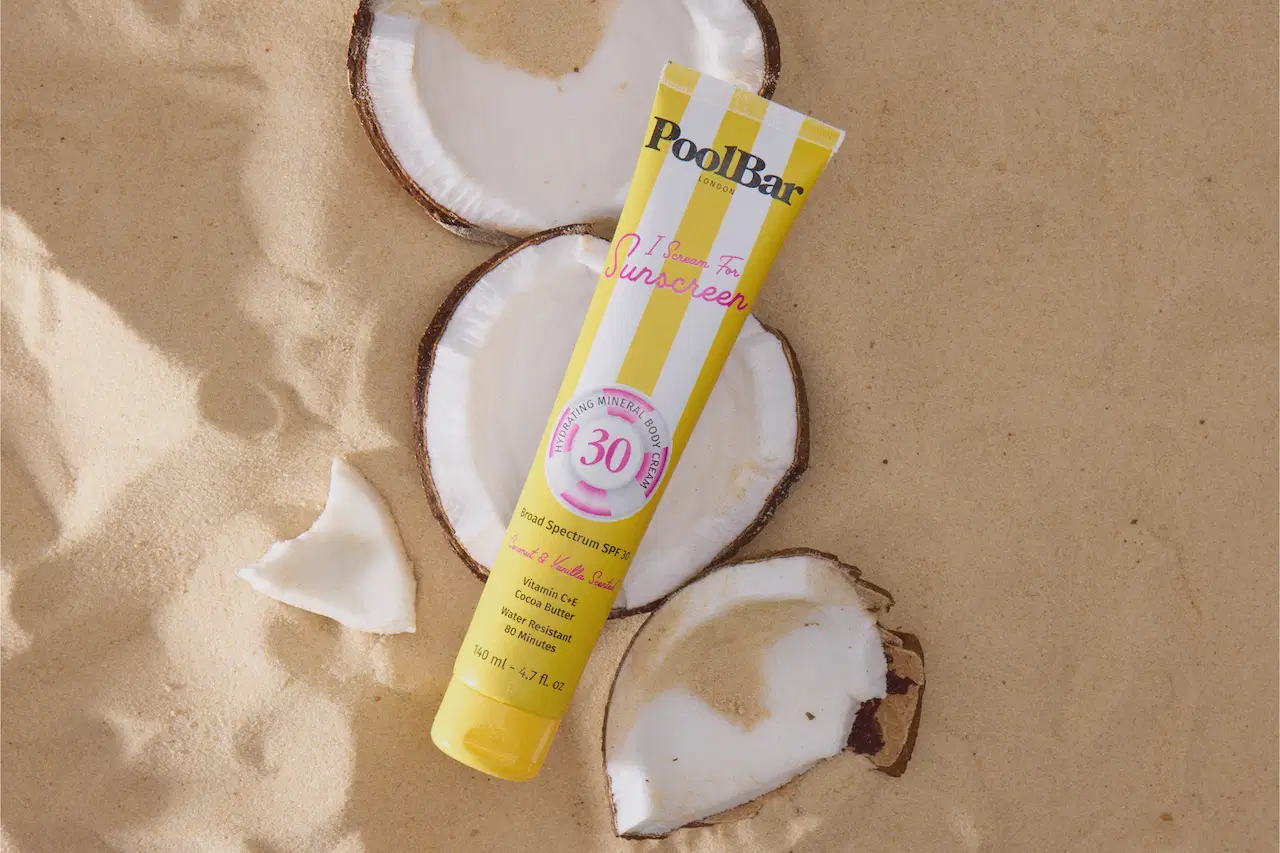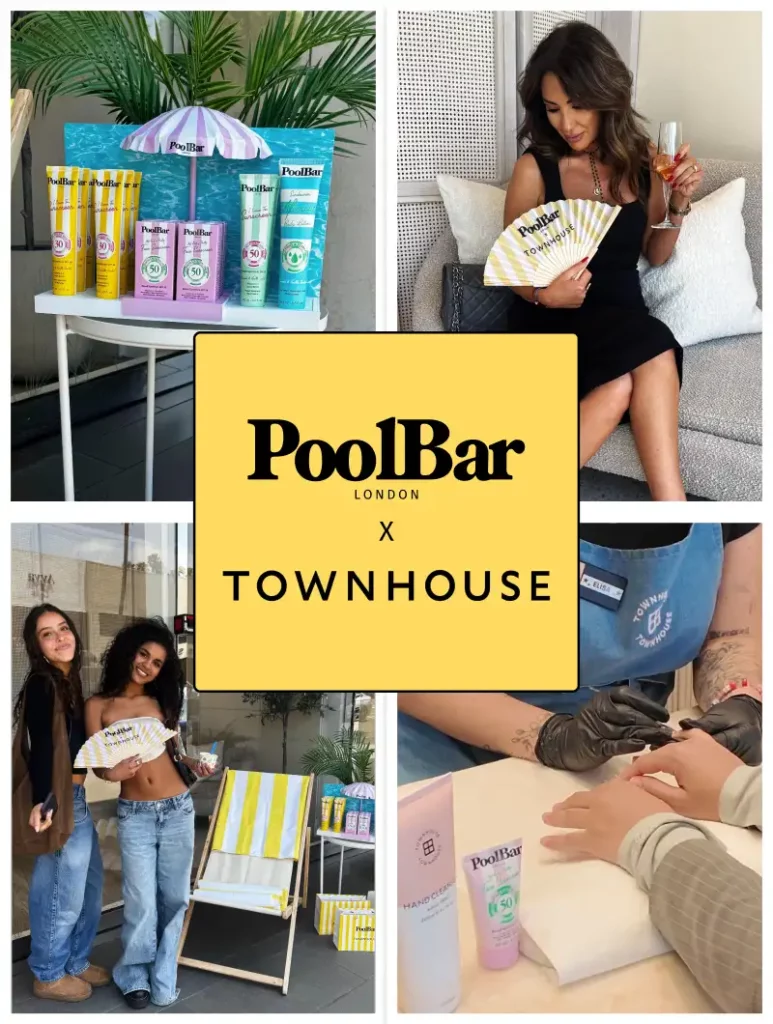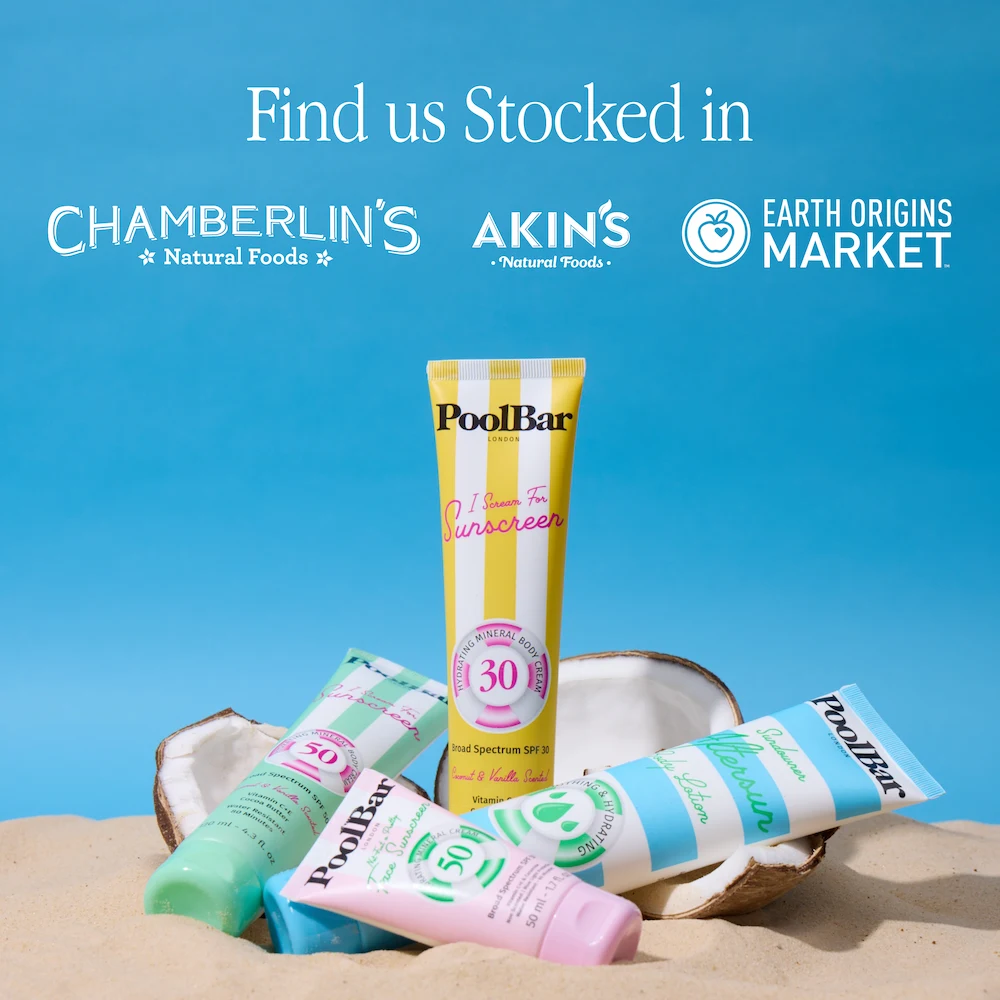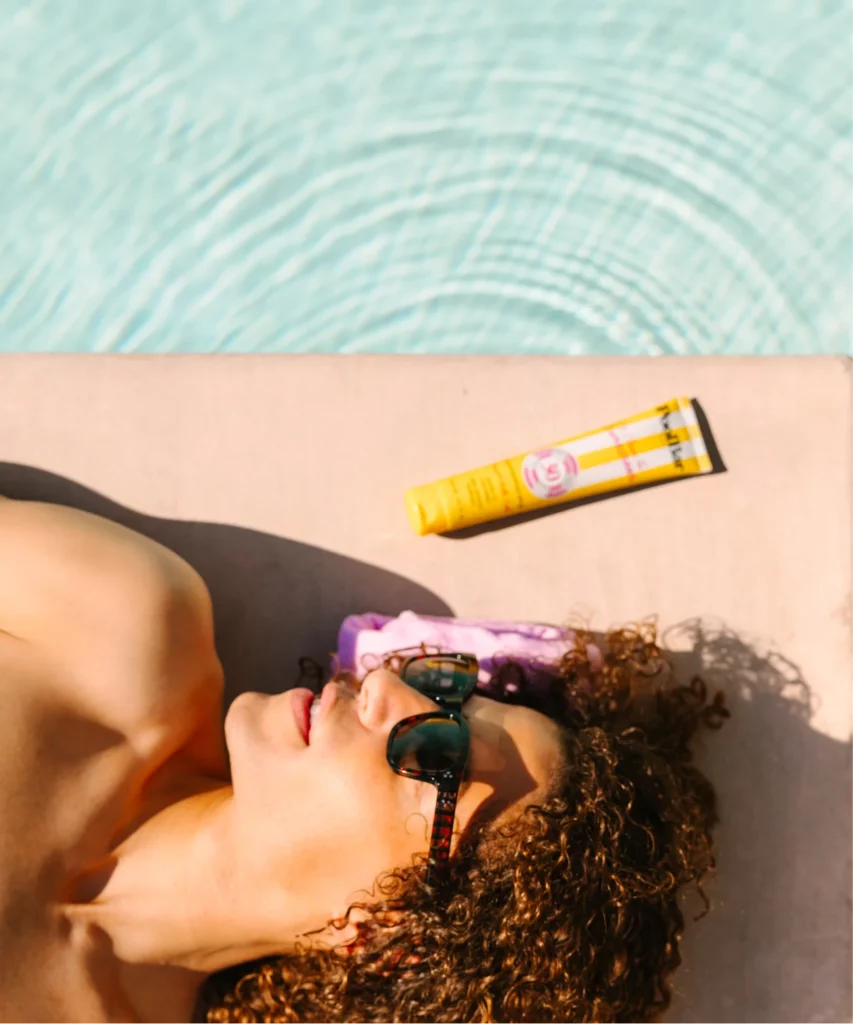You’ve probably seen the terms “mineral” and “chemical” on sunscreen bottles, skincare blogs, or TikTok routines, but what’s the actual difference between them?
At PoolBar London, we’re all about sun protection that looks good, feels good, and actually works. In this guide, we’ll break down everything you need to know about mineral vs chemical sunscreen, plus explain key ingredients like zinc oxide and titanium dioxide, so you can decide what’s best for you.
Why Wearing Sunscreen Every Day Matters
Before we get into the differences, let’s cover one simple truth: sunscreen is one of the most important things you can do for your skin.
It protects against harmful UVA and UVB rays, which are responsible for sunburn, premature aging, collagen breakdown, and an increased risk of skin cancer.Even on cloudy days, even in winter, SPF is your daily essential. Think of it as long-term skincare with instant benefits.
What Is Mineral Sunscreen?
Mineral sunscreen, also called physical sunscreen, uses naturally occurring minerals to create a physical barrier that sits on the skin and deflects UV rays.
They’re a popular choice for those with sensitive or reactive skin, as they tend to be less irritating and don’t clog pores. Mineral sunscreens are often fragrance-free, formulated with fewer additives, and suitable for use on delicate areas like around the eyes. For people with conditions like rosacea or eczema, they’re often the gentlest option.
It’s also generally more stable in direct sunlight and considered reef-safe when formulated with non-nano particles. This makes it a great choice for anyone who spends time outdoors or is mindful of their impact on the environment.
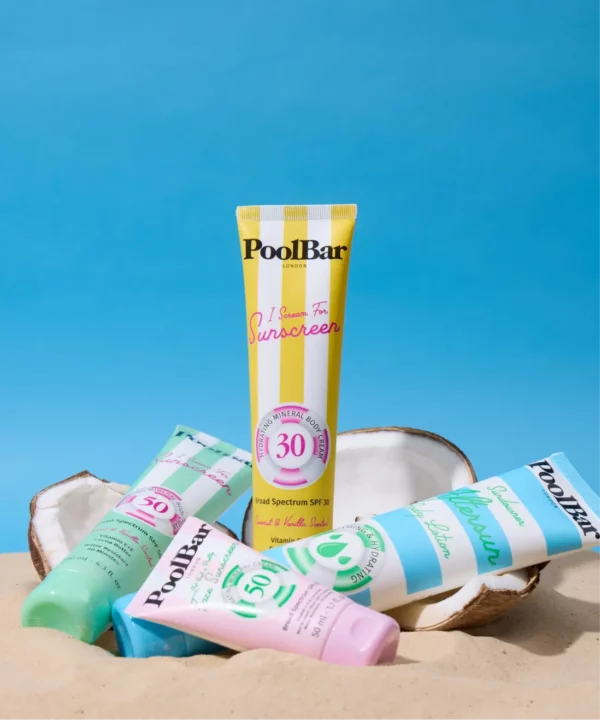
What Is Chemical Sunscreen?
Chemical sunscreens use synthetic filters that absorb UV radiation and convert it into heat, which is then released from the skin. Common chemical filters include:
- Avobenzone
- Oxybenzone
- Octinoxate
- Homosalate
- Octocrylene
These ingredients work by soaking into the skin and creating a chemical reaction that neutralises UV rays. They usually require around 15 to 20 minutes to become effective after application.
While many chemical sunscreens offer strong protection, some of the older filters, such as oxybenzone and octinoxate, have raised concerns over skin sensitivity, hormone disruption, and environmental impact, especially on coral reefs. That’s why they’re banned in certain places like Hawaii and parts of Australia.
They also tend to come with the classic sunscreen scent that some people love, but others may find overpowering or unpleasant. Because they work by creating a chemical reaction within the skin, certain users experience stinging, redness, or breakouts, particularly when reapplying throughout the day.
Side By Side Comparison
| Feature | Mineral Sunscreen | Chemical Sunscreen |
|---|---|---|
| How it works | Sits on the skin and reflects UV rays | Absorbs UV rays and converts them into heat |
| Active ingredients | Zinc oxide, titanium dioxide | Avobenzone, oxybenzone, octinoxate, etc. |
| Suitability | Good for sensitive or acne-prone skin | Can irritate certain skin types |
| Time to take effect | Immediate | Around 15–20 minutes |
| Environmental impact | Generally reef-friendly (especially non-nano zinc oxide) | Some filters are harmful to marine life |
| White cast risk | Possible, but improved with modern formulas | Rare, usually goes on clear |
Both types can be effective if used correctly, but mineral sunscreens are often preferred by dermatologists for those with sensitive skin or looking for a cleaner alternative.
What Is Zinc Oxide Or Titanium Dioxide?
Both are used in mineral sunscreens, but they’re not interchangeable.
- Zinc Oxide offers true broad-spectrum protection (UVA1, UVA2, UVB), making it ideal for daily use. It also has soothing, anti-inflammatory properties, making it suitable for sensitive or breakout-prone skin.
- Titanium Dioxide provides great UVB protection but less UVA coverage. Often used in lighter formulations or makeup-based sunscreens. It’s gentle but less comprehensive unless paired with zinc oxide.
Most modern mineral sunscreens (including PoolBar London) rely primarily on zinc oxide to deliver that broad-spectrum coverage in a formula that feels good on the skin. You can avoid the white cast issue by using ultra-fine non-nano particles that smooth in seamlessly.
Which One Should You Use?
There’s no one-size-fits-all answer. It depends on your skin, your values, and your routine.
Choose mineral sunscreen if:
- You have sensitive, acne-prone or reactive skin.
- You want a more natural or environmentally friendly option.
- You prefer something that works instantly and is less likely to irritate.
Choose chemical sunscreen if:
- You want a super lightweight feel with no risk of white cast.
- You’re doing activities that involve heavy sweating or swimming.
- Your skin isn’t sensitive to active ingredients.
No matter which you choose, the most important thing is consistency. Daily application and reapplication are what really make the difference in protecting your skin.

What About Hybrid Sunscreens?
Hybrid sunscreens combine both mineral filters and chemical filters in one formula. This approach is designed to give you the benefits of both types of protection, with fewer compromises.
The mineral filters act as a physical shield on the skin’s surface, reflecting the sun’s rays. Meanwhile, the chemical filters absorb UV radiation and convert it into heat, which is then released from the skin.
Together, they can deliver enhanced broad-spectrum protection while creating a lighter, more blendable texture.
For some people, hybrid sunscreens feel more wearable; however, while they can be a great middle ground, they aren’t always ideal for everyone. People with very sensitive or reactive skin may still experience irritation from chemical ingredients.
And for those who prefer cleaner formulations or are trying to avoid certain synthetic filters, a fully mineral sunscreen might still be the better option.
Daily SPF Starts Here
Understanding the difference between chemical and mineral sunscreen helps you make the right choice for your skin and lifestyle. Whether you’re after clean ingredients, high performance, or just trying to find a formula that won’t cause breakouts, knowledge is key.
At PoolBar London, we’re firm believers in mineral sunscreen, especially zinc oxide for its broad-spectrum protection and skin-friendly benefits. But ultimately, the best sunscreen is the one you’ll wear every day. We provide a sun care range that is dermatologically tested and safe for all skin types, even sensitive.
Choose an SPF that fits your skin and wear it daily. Give your skin the protection it deserves, without overcomplicating things.
